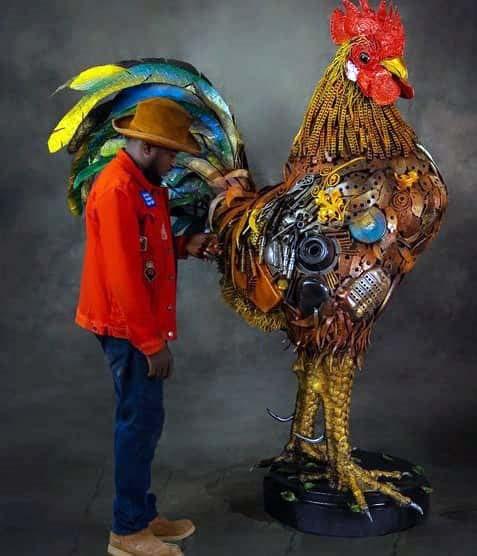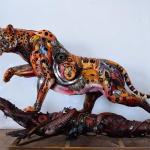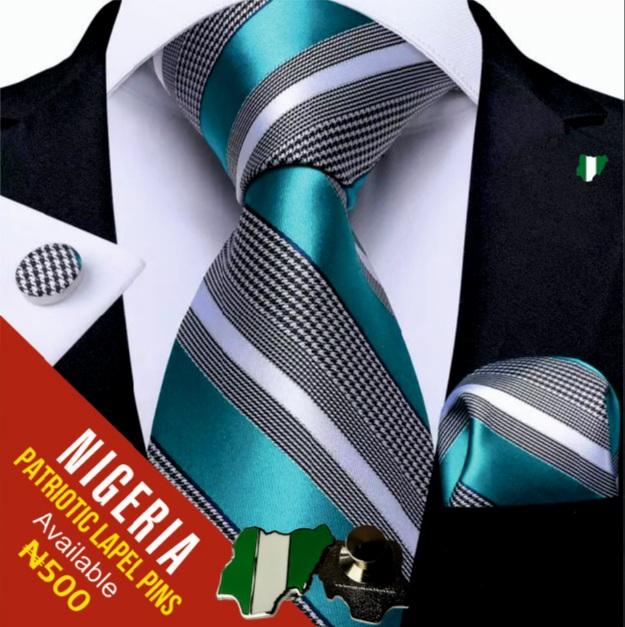In the bustling heart of Lagos, where the hum of generators mingles with the shouts of street vendors, an artist is quietly redefining what it means to create beauty from chaos. Dotun Popoola, a name now synonymous with ingenuity in African contemporary art, spends his days surrounded by piles of rusted metal—discarded car parts, twisted nails, and forgotten engine scraps. To most, these are the remnants of a throwaway society. To Popoola, they are the raw materials of revolution.
The Alchemist of Lagos
Popoola’s workshop, tucked away in a labyrinth of Lagos’s mechanic workshops, feels like a shrine to resilience. Here, the clang of his welding torch echoes like a rhythmic drumbeat, transforming jagged metal shards into lifelike figures that seem to pulse with ancestral energy. His sculptures—towering depictions of Yoruba kings, sinuous wildlife, and everyday Nigerians frozen in moments of joy or struggle—are more than art. They are testaments to a philosophy: nothing is ever truly wasted.
“Every piece of scrap has a story,” Popoola explains in a rare interview, his hands still dusted with metal filings. “When I see a broken gear or a bent nail, I don’t see trash. I see potential. I see Africa’s past and future fused together.”
From Junkyards to Galleries 
Born and raised in Lagos, Popoola’s journey began far from the glittering art galleries that now showcase his work. As a child, he wandered the junkyards near his home, fascinated by the textures and shapes of discarded machinery. His formal education in fine arts—likely honed at institutions like Yaba College of Technology—gave him technical mastery, but it was the streets of Lagos that taught him to see art in the unlikeliest places.
His breakthrough came when he welded his first large-scale sculpture: a life-sized antelope crafted entirely from motorcycle chains and bicycle spokes. The piece, titled “Ogun’s Gift” (a nod to the Yoruba god of metal and war), caught the eye of curators at Lagos’s prestigious Nike Art Gallery. Overnight, Popoola became a sensation, his name whispered in art circles from Abuja to London.
Metal with a Message
Popoola’s art is as politically charged as it is visually striking. One of his most famous works, “The Crowned Migrant,” depicts a regal African woman adorned with a headdress of welded screws and bolts, her gaze defiant. It’s a commentary on migration, identity, and the quiet strength of African women. Another piece, “Echoes of the Savannah,” reimagines a lion’s mane as a cascade of recycled car springs, symbolizing both ecological fragility and unyielding power.
“Africa’s story is written in metal,” Popoola says. “From colonial railroads to the cars choking our cities today, metal has shaped us. My work asks: How do we reclaim that narrative?”
Global Resonance and Viral Fame
In 2023, Popoola’s Instagram reel demonstrating his creative process—sparks flying as he welded a scrap-metal eagle—went viral, amassing millions of views. Followers marveled at his ability to turn “junk” into jaw-dropping art. International collectors began flocking to Lagos, and invitations to exhibit in New York, Dubai, and Paris soon followed.
Yet for Popoola, success is measured not in accolades but in impact. He mentors young artists in Lagos, teaching them to see value in overlooked materials. “The next generation will heal this planet through creativity,” he insists.
The Legacy of a Scrap-Metal Visionary
Today, Dotun Popoola stands at the forefront of a global movement merging sustainability with artistry. His sculptures, displayed in galleries and private collections worldwide, challenge viewers to rethink consumption, heritage, and the very meaning of waste.
As the sun sets over Lagos, casting golden light on his latest work-in-progress—a massive scrap-metal map of Africa studded with fragments of Nigeria’s history—Popoola smiles. “This is my love letter to Africa,” he says. “A reminder that even broken things can become timeless.”











